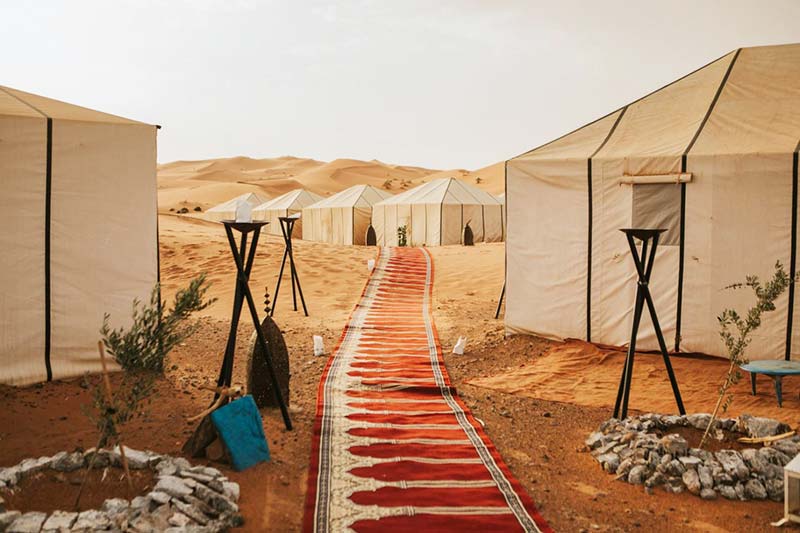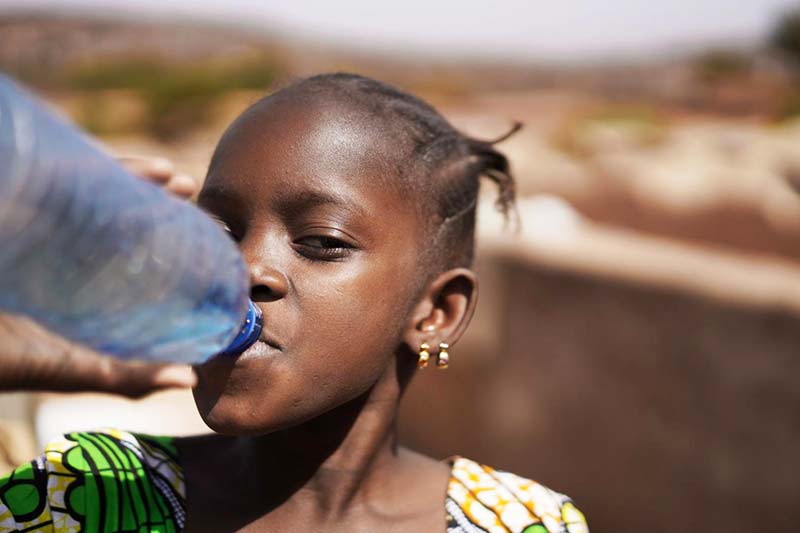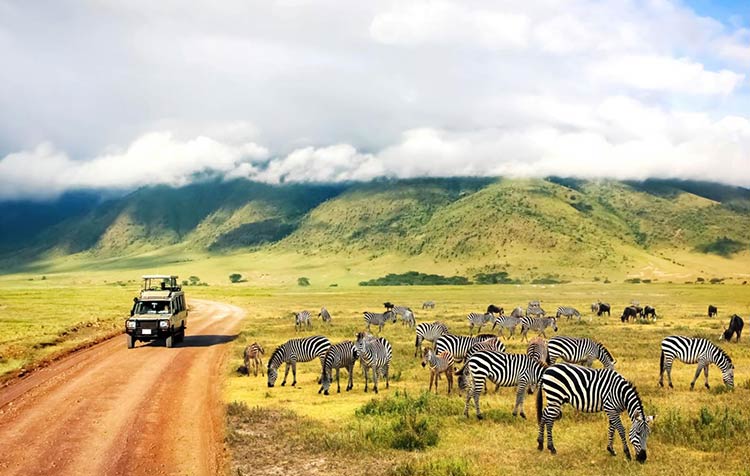You always wanted to travel to Africa and see this huge, exciting and beautiful continent? But at the same time, are you concerned about the sustainability of your stay there and the environmentally friendly ways of getting around? I can certainly understand that.
In this article, I would like to tell you whether you can somehow travel halfway green in Africa and if so, how that works best. Let's go!
Environmental protection in Africa
As harsh as it sounds, it is also true: Environmental protection is a luxury problem in a certain way. Of course, it would be great if every person in the world had the knowledge and the opportunity to think about and protect the environment in everything they do and consume. However, many people sometimes have neither the possibilities nor the appropriate education.
In many countries in Africa, quite a few people have to struggle every day to provide for their own survival. Poverty in Africa is enormous. Of the 897 million people worldwide living in extreme poverty in 2012 just under two-fifths lived in sub-Saharan Africa. Although the proportion of people living in extreme poverty has fallen due to the high population growth reduced somewhat, but it is still alarmingly high. Scarce drinking water and dangerous diseasesThe number of people who die every year because of these problems is enormous. Every year, countless people die because of these problems.
In the midst of all this, taking care of the garbage that collects on the edges of the streets or worrying about the shrinking forests - for many Africans, this is simply not something to think about. Instead, the first priority is to secure their own existence.
Tip: In the article Stop world hunger you will learn how you can help every day by the way!
Travel to Africa - Do without luxury

Unlike the locals, as tourists in Africa, we are Committed to protecting nature in all our actions as best we can. As a traveler, you must be aware that you will probably have to do without most of the luxuries "from home". For example, if you stay in a camp in the Wilderness overnight, you will have to let the sun dry your hair. This is because the use of hair dryers causes power spikes. These current spikes destroy many generators and inverters, which is why they are absolutely forbidden in most camps.
Furthermore you have to separate yourself from the thought of being able to see everything you might want to see. At least if you care about nature. For some routes too large off-road vehicles are needed, whose gasoline consumption is hard to believe. The food often comes only with big trucks to the camps. Big supermarkets are mostly only in bigger cities. Water is only available in plastic bottles, because natural sources are often contaminated and dangerous. Purified water, on the other hand, sometimes has an unpleasant taste. You have to go through all these things and you should be aware of them before your trip.
Make the Africa trip itself as environmentally friendly as possible

Of course, it is important to make sure that the trip itself is as environmentally friendly as possible. Of course, you will not be able to avoid a flight to Africa. If you decide to do this, you should know how you can properly compensate your emissions for the trip. There are also providers of fully planned trips, whose services include the compensation of all CO2 emissions. This can be, for example, a stay in a large city, but also a round trip through Tanzania, where you can enjoy environmentally conscious safaris and bathing fun. equally offered.
If you're not sure if you're booking real ecocamps, for example, when you're booking on-site accommodations, ask questions. Such a question can simply be: Does the outhouse really not have a flush? Or: Are Bucket Showers available, where cold water is heated over the fire when needed? Only if such simple standards are given, you can be sure that these are green camps. It also applies: The larger the lodge or camp chain, the less likely it is to be run sustainably and green. Because, unfortunately, in Africa, too, profit maximization usually dominates over environmental protection when it comes to these things, of course.
Tip: If you feel like it, you are welcome to use my Book "Sustainable travel for beginners read. There you'll learn all about environmentally conscious, sustainable travel - from the preparation to the time after your vacation.
More tips for your Africa trip
During your trip in Africa itself, the following tips may be helpful:
- Garbage: Problematic waste, such as empty batteries, but also tin cans, used hygiene products and metal packaging, should at best simply be taken home again. Here you can simply dispose of things in a much more natural way. (see also Zero Waste Journey)
- Energy: Always remember to turn off all lights and air conditioning as soon as you leave a room or lodge. At best, use both sparingly anyway, if possible. (see also Power saving tips)
- Drink: Avoid disposable water bottles and always refill your once-purchased plastic bottle at drinking water outlets. (see Zero Waste Basic Equipment)
- Personal care: Despite the heat, try to shower only once or even every other day if possible. This is especially important in bush camps. You should wash your hair and your clothes only in bigger cities, where there is more water for everyone.
- Meals: "Good" meat usually comes from South Africa or Kenya. So if you travel to areas far away from these countries, try to avoid meat. This way you avoid supporting the long transportation routes and the Protect climate. (see also Vegan on vacation)
Tip: You can also find these and many more tips in my detailed post about sustainable travel.
Look for certified providers for sustainable travel in Africa
The South African organization Fair Trade Tourism (FTTS)which was founded in 2003, awards certificates to specific travel providers or individual travel offers. Prior to the award, various tourism offers are checked in different African countries according to strict fair trade criteria. A particular trip, for example, receives the seal if at least half of the booked accommodations are certified as Fair Trade.
So when you book your trip to Africa, you can look for this light and dark green seal with the white hook or swoosh in the middle. Then you already have a first indicator that the trip will probably be as environmentally and socially responsible as possible. Because the organization's criteria include fair wages and good working conditions also the responsible operation of the company with regard to ethical aspects. Respectful treatment of African culture, human rights and the environment is also crucial.
Environmentally and socially responsible travel in Africa works!
As you can see, sustainable travel in Africa is possible. However, it must be clear to you that you have to forego certain standards and always think about and review your actions. But isn't that what makes sustainable travel so special and meaningful? If you then find the right provider or a certified trip, nothing stands in the way of your adventure on the second largest continent on earth!
Do you have any questions or your own experiences regarding sustainable travel in Africa that you would like to share? Then just write me a comment.
A good trip at all times!

PS.: In the Blog about sustainable travel you'll find plenty more inspiration. For example, find out why the Vacation alone promises so many opportunities!





